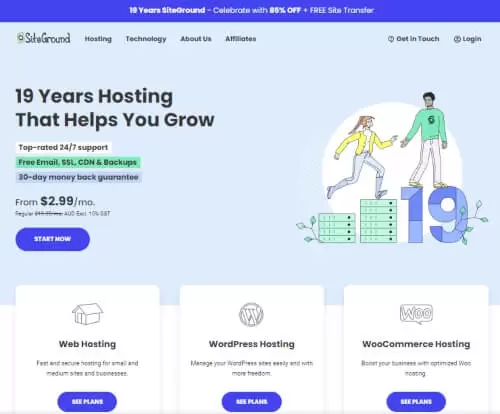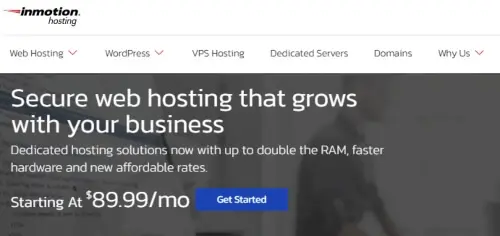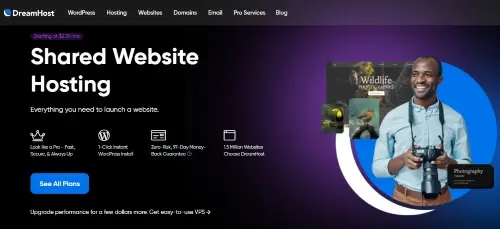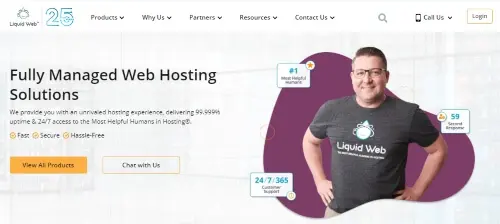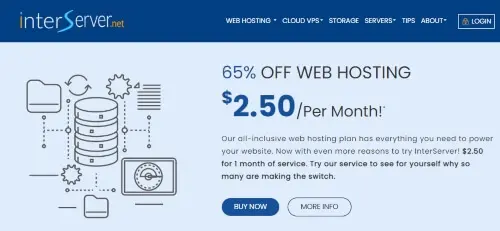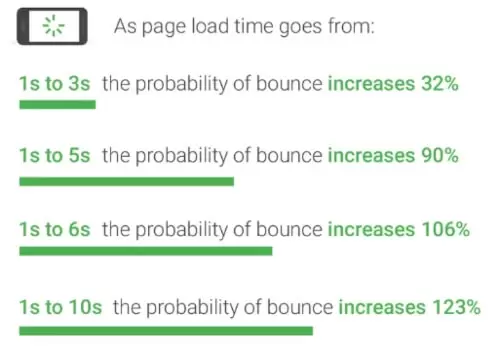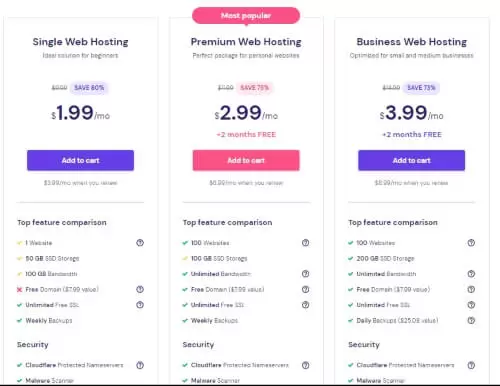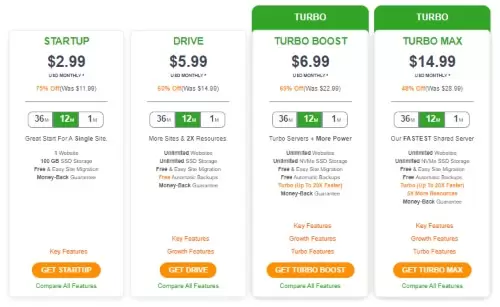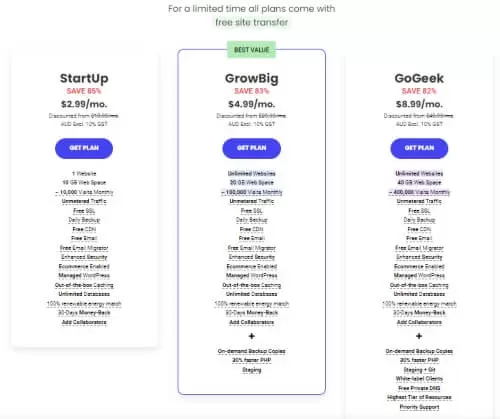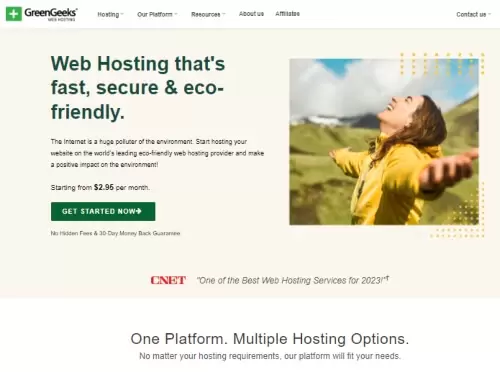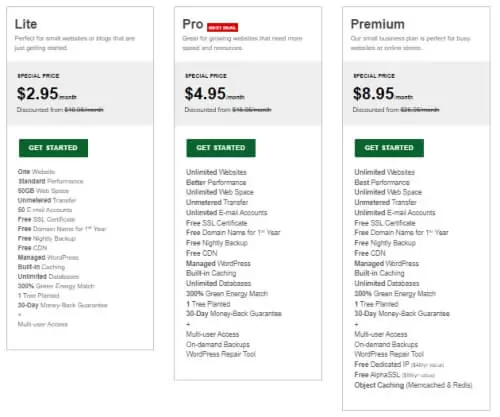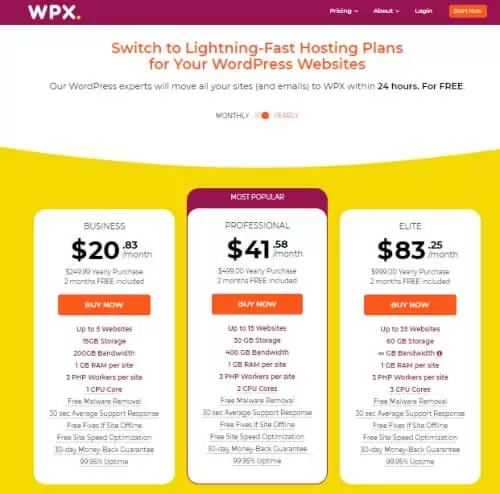
How Much Does It Really Cost to Start a WordPress Blog 2025
Are you eager to start your blogging journey, but unsure about the costs involved? You’re not alone. Many aspiring bloggers find themselves asking “How much does it cost to start a blog?“
Let alone, promote and maintain a successful blog.
In this comprehensive guide, we’ll break down all the aspects of starting a blog, from domain registration and hosting fees, to design and content creation expenses.
We’ll even discuss various blogging platforms so you can make an informed decision that best fits your goals and budget.
So grab a pen or open up your favorite note-taking app, because, by the end of this post, you’ll have all the information needed to budget for your blog’s success.
How Much Does It Cost To Start A Blog in 2025?

This page have some affiliate links. In other words, if you buy from my links, I may get a commission.
| Blog Feature | Monthly Cost |
|---|---|
| Platform Subscription | $0 |
| Website Hosting (Bluehost) | $2.95 |
| SSL Certificate | $0 |
| Website Template or Theme | $0 |
| Branding – Logo and Design | $0 |
| Domain Name | $11 |
| Apps and Integrations | $0 – $250 |
| SEO and Marketing | $0 – $200 |
| Email Marketing | From $9 |
Table A – Cost to Start a WordPress Blog
As you can see from the table above, a few essential items like domain name and website theme will not cost any extra if you select the right web host, and if you use WordPress.
Whilst it isn’t a perfect table, you can get the gist that starting a blog can cost a minimum of $47 a year (hosting and domain name).
Therefore, to answer your question – How much does it cost to start a blog on Bluehost?
It will cost you around $47 on the most basic plan to run a blog.
And the cost will vary.
This is because it will boil down to the type of blog you want to run and your goals with it.
Keep in mind that the $47 cost to start a blog excludes other variables like hardware costs, marketing, and so forth.
With that quick snapshot.
If I were to begin a new blog today, here are the things I would consider investing my money in.
So buckle up.
Domain Name Registration
One crucial aspect of starting a blog is choosing and registering a domain name.
A domain name is essentially your website’s permanent address. Making it easy for people to find and visit your site.
And it represents your brand.
Normally, your blog’s name and domain name will be the same, so picking a good domain name is a very important part of branding.
And when it comes to buying a domain main from Namesilo, it will set you back between $10 to $15 per year.
(By the way. I have a special Namesilo coupon code for my readers that I will share later.)
But if you want to save on the domain fees, you can subscribe to a web hosting service like Bluehost and save.
For example. Bluehost Choice Plus plan offers an inclusive package with hosting and free domain registration for the first year.
While registering a domain name through a web host is available, I’d stay away from it for two reasons.
- Having both your domain and web hosting located at the same spot creates a single point of failure for your website, which is not good for security.
- Moving hosts becomes more difficult when you want to switch providers.
Instead. I suggest using Namesilo as a separate service because it has the following advantages:
- Secure: This is important because if someone ever gets access to your domain name, they have full control over your blog.
- Affordable: Around $11 per year for a .com domain, whereas most hosts will increase the renewal price after the free first-year period.
- Convenient: By registering at Namesilo, you can conveniently manage your domain name and make changes whenever you need to.
Sidenote: many blogging platforms such as WordPress.com include a subdomain (e.g., myblog.wordpress.com) at no additional cost under their free plan.
But this is not recommended for aspiring bloggers who want to turn their blog into a business.
If you want to be taken seriously, grab your own domain name.
Hosting Fees
Another must-have expense when starting a blog is your hosting fees.
Web hosting providers offer storage space and resources for your website, allowing it to be accessible to visitors online.
For blogging beginners who want an affordable option without comprising quality, shared hosting can be a great starting point.
Shared hosting typically costs between $1.99 to $25 per month.
With shared hosting, multiple users share the server resources.
This is perfect for those just testing the waters of blogging or with lower traffic levels.
However, to take advantage of the offer, you will need to sign up for a 1-year plan or longer.
For example, Bluehost offers basic shared hosting plans starting at just $2.95/month for a 1-year commitment. With the plan, you will get a free domain, a free SSL, WordPress, and 10GB of storage.
Design And Development Costs
This can include anything from customizing a theme to match your brand’s aesthetic to hiring a designer to create a unique website layout for you.
You can opt for the free version or the premium themes like Elegant Themes ($89 a year).
Premium themes are usually more affordable than hiring a developer, but they may not suit your specific needs as well.
It’s important not to overlook the importance of having a professional-looking website. It’s what will help set you apart from competitors in your niche!
However, if budget is an issue, there are plenty of resources available online where bloggers can learn how to create DIY websites that still look polished and professional without breaking the bank.
And talking about branding.
Design tools like Canva offer free accounts for DIY bloggers to design their logos, branding, and more at no cost.
And if you want a more polished look to your brand, you can upgrade your plan with Canva.
WordPress Yo
- The WordPress software is free, open-source, and super easy to use.
- It powers over 43% of all websites on the internet.
- Did you know that WordPress dominates the CMS market with a share of 64.2%, which is more than 10 times higher than its nearest competitor?
- You have full control over your website and you own the data.
- Your website will not be shut down simply because some knucklehead or AI deemed it in violation of their terms of service (provided you’re not doing some shady stuff).
- You can enhance your website with powerful WordPress plugins and apps (free, paid, or custom).
- You can customize or even modify your website design with a free or paid WordPress premium theme.
- You can make money blogging using some of the monetization models like affiliate marketing, display ads, consultation, membership sites, and so on.
- You can track and analyze your website’s performance using free powerful software like Google Analytics.
I’ll get onto the pros and cons later.
Hardware Costs
Depending on the type of blogger you are, whether hobbyist or full-time blogger and your preferred work style, hardware needs may vary.
On the other hand, full-time bloggers might need to invest in more advanced equipment such as a laptop, high-quality microphones for podcasting, headphones, a webcam, fast wifi connectivity, and video production software.
Importance Of Investing In One’s Blog For Success

While there are free blogging platforms out there, investing in a self-hosted platform like WordPress allows you greater control over your website and content.
Investing in design and development costs can also make a significant difference in how professional your blog looks and functions.
A well-designed website with clear navigation will keep readers engaged and coming back for more.
In addition to monetizing through sponsorships or affiliates, bloggers should consider utilizing different advertising options like email campaigns or social media ads as part of their promotional efforts.
Understanding Different Blogging Platforms And Costs
In this section, we’ll go over the free and self-hosted blogging platforms and how investing in your blog is essential for achieving success.
Free Blogging Platforms Vs. Self-hosted And Managed Platforms
Each option has its own benefits and drawbacks, as outlined in the table below:
| Free Blogging Platforms | Self-Hosted and Managed Platforms |
|---|---|
| No upfront costs, making it attractive for beginners and hobby bloggers | An initial investment is required to set up and manage the blog, including hosting fees and domain name registration |
| Limited customization options, which may not provide the desired look and feel for your blog | Greater flexibility in design and customization options, allowing you to create a unique and professional-looking blog |
| Potential limitations on monetization options, as some free platforms restrict ad placement and affiliate marketing | Complete control over monetization, making it easier to earn money through ads, sponsored content, and affiliate marketing |
| May not have a custom domain name, reducing credibility and professionalism | Option to use a custom domain name, increasing credibility and creating a strong brand identity |
| Platform provider may place their own ads on your blog, detracting from the user experience | No unwanted ads from the platform provider, giving you full control over the user experience |
| Limited support and resources available to help you grow and maintain your blog | Access to a wide range of resources, support, and tools to help you grow and manage your blog effectively |
Table B – Pros & Cons of Starting a Blog With a Free and Self-Hosted Platform.
While free blogging platforms can be a good starting point for beginners, it is not recommended.
For those looking to generate income or create a professional website, self-hosted and managed platforms provide more flexibility and control, ultimately helping you achieve blogging success.
Limitations And Disadvantages Of Using A Free Plan
While using a free blogging platform may seem like an attractive option for beginners, it comes with limitations and disadvantages. Some of these include:
- Limited Design Options: With a free plan, you are restricted to the platform’s design templates, which are often basic and generic. This limits your ability to customize your site to reflect your brand or personal style.
- Limited Storage: Free plans usually come with limited storage space, which can restrict the number of images and videos you can upload on your blog.
- Irritating Ads on Your Site: The majority of free blogging platforms display ads on their sites. These unwanted ads can be distracting and unappealing to visitors, lowering their trust in your site. Plus, you don’t get paid for them.
- No Domain Name: Most free plans do not come with a custom domain name, meaning that you will have a web address that includes the hosting platform’s name.
- Limited Functionality: Free blogging platforms offer limited functionality and features compared to self-hosted platforms such as WordPress.org.
- Lack of Control: With a free plan, you have limited control over your site’s content and data ownership.
- Brand Recognition: Using a free plan can affect your brand recognition since the site will not have its own unique branding elements that distinguish it from other blogs created using the same platform.
If you want to be taken seriously, skip the free platforms. Because even though you will save on the cost to start a blog site. Long term, it is not worth the time and effort.
And it doesn’t give you a professional impression.
It is way better to invest in a self-hosted blog for better control over content ownership, design customization options, storage space, and more functionality.
I suggest at a minimum, going for the most basic hosting plan with the likes of Bluehost. At least you will have control and flexibility over the direction of your banging blog.
Costs Associated With Each Platform
To help you make an informed decision, let’s compare the costs of some popular blogging platforms in the table below.
| Platform | Domain Name | Hosting | Additional Features |
|---|---|---|---|
| WordPress.com | Included in paid plans | Free to $45/month | Varies (customization, SEO tools, etc.) |
| Squarespace | Included in paid plans | $16-$52/month | Varies (E-commerce, analytics, etc.) |
| Wix | Included in paid plans | Free to $59/month | Varies (Google Ads, analytics, etc.) |
| Weebly | Included in paid plans | Free-$38/month | Varies (E-commerce, analytics, etc.) |
Table C – Cost to Start a Blog With Four Popular Website Builders
And I don’t recommend the free options.
With that said.
How Much Does It Cost to Start a Blog With a Website Builder?
| Blog Feature | Monthly Cost |
|---|---|
| Platform Subscription | $10 |
| SSL Certificate | $0 |
| Website Template or Theme | $0 |
| Branding – Logo and Design | $0 |
| Domain Name | $11 |
| Apps and Integrations | $0 – $250 |
| SEO and Marketing | $0 – $200 |
| Email Marketing | From $9 |
Table D – Cost to Run a Blog With a Website Builder
So how much does it cost to run a blog?
Estimate total cost to start and maintain a blog (on a basic plan) equates to $131 a year (hosting and domain name).
Again. I recommend you to register your own domain name and opt for a basic plan at minimum.
Reasons For Launching A WordPress Blog
Furthermore, WordPress is the most popular content management system (CMS) in the world.
By using it, bloggers can leverage its many features to create professional-looking blogs with ease.
Moreover, blogging beginners should consider using WordPress as it is highly customizable in terms of design and layout.
With thousands of free or paid themes available for download from its repository or third-party websites such as Elegant Themes, bloggers have plenty of options to choose from when creating their online presence.
Difference Between The Two WordPress
Yes. There are 2 freaking versions of WordPress: WordPress.org and WordPress.com.
While they may sound similar, there are significant differences between them.
It’s essential to understand these differences when selecting which version of WordPress best suits your needs regarding both power and pricing structure before launching into starting your blog on either platform.
What is WordPress.org?
WordPress.org is completely open source and available to everyone for free. It’s also very flexible and requires only purchasing a domain name and web hosting, which is why it is known as a self-hosted WordPress.
But you will need to purchase web hosting services from a provider like Bluehost or HostStinger to use this version of WordPress.
The best part is. Most web hosting providers like Bluehost have a 1-click WordPress install to help you start a WordPress blog in minutes.
When using this WordPress, you can choose from thousands of themes and plugins to customize your blog as per your preference fully.
WordPress.org is what I use and recommend.
What is WordPress.com?
Now with WordPress.com, it is a website builder using WordPress.org Content Management System (CMS).
Simply put, a hosted platform like WordPress.com takes care of your blog’s hosting needs, eliminating the need for you to organize hosting separately.
Now the drawback of using free WordPress.com, you’re limited by the available themes and plugins provided by the platform.
So, how much does it cost to start a blog on WordPress.com?
If you want to save the hassle of finding a web host, here are the available plans.
- A limited free plan (1GB storage)
- Personal plan: $48 a year (6GB storage)
- Premium plan: $96 a year (13GB storage)
- Business plan: $300 a year (200GB storage)
- Commerce plan: $540 a year (200GB storage)
- Enterprise: requires a quote estimate
Now here comes a few big BUTs.
Firstly. The amount of storage you get with these plans is small. Plus, there are fewer features. So it is expensive.
In contrast to Bluehost, you’ll get 10GB for roughly $35 a year.
Secondly. Even though WordPress.com offers a plan for as low as $3, there is a catch to this great starting price. The free domain name promotion will include a subdomain with the extension ‘.blog’.
To avoid this, you will have to choose the premium package that costs $8 per month.
Lastly. In order to sell items through your blog, you will need to pay an additional fee to access all of the e-commerce tools offered by your builder.
That means more added cost to start a blog.
In contrast, the total cost to start and maintain a blog with Bluehost is $47 a year (refer to table A above).
Pros And Cons Of Using WordPress
| Pros of WordPress.com | Cons of WordPress.com | Pros of WordPress.org | Cons of WordPress.org |
|---|---|---|---|
| Free to use | Ad displays | Complete control over website | Need to purchase web hosting and domain name |
| Provides free subdomain and hosts site’s data | No site identity | Ability to monetize website | Need to manage website on your own |
| Hassle-free integration with social networks | No monetization | Over 60, 000 plugins available | Need to install and manage plugins on your own |
| Easy to use | Limited customization | Free to install | Cost associated with web hosting and domain name |
| No plugins | Wide variety of free and paid themes to choose from | Need to manage website security on your own | |
| No third-party scripts | Easy to install on most hosting providers and can be set up quickly. | Need to manage website backups on your own |
Table E – Pros & Cons of WordPress
Additional WordPress Costs
Aside from the initial costs of setting up a WordPress blog such as hosting and domain registration fees, there are also additional expenses you may encounter.
One example is the cost of premium WordPress themes or plugins that can help improve your website’s functionality and design.
Another potential expense is hiring a developer or designer to customize your blog beyond what a theme can offer. This could include creating a unique layout or adding custom features specific to your niche.
However, this can be quite costly, ranging anywhere from $500 to $2,500 depending on the extent of customization needed.
That’s just a rough ball figure.
This is worth saying again.
WordPress is an excellent choice for bloggers looking for a customizable and user-friendly platform.
However, it’s important to keep up with updates and take necessary precautions to ensure the safety and security of your website.
Choosing A Hosting Provider
Choosing the right hosting provider is crucial for your blog’s success. A hosting provider is where your website will be stored and managed, so it’s important to choose one that is reliable and efficient.
Some popular hosting providers include Bluehost, SiteGround, and Hostinger. These providers offer different plans with varying prices based on factors such as storage capacity and website traffic.
For example, Bluehost offers a variety of plans starting at $2.95 per month for a basic plan with 1 website, 10GB storage, a free domain, and a free SSL.
While their Pro plan will cost you to start a blog at $13.95 per month.
Although the Pro plan is more expensive, it includes unlimited websites, 100 GB storage, a free domain name, a free SSL, and a free dedicated IP.
How Much Does Bluehost Cost to Start a Blog?
Bluehost is a popular web hosting company that offers affordable plans for bloggers. And it is recommended by the team at WordPress.
The basic plan starts at $2.95 per month and includes 1 website, WordPress management, and 10 GB of storage space.
Below is a table of Bluehost hosting plans.
As well, Bluehost provides great customer support through phone calls, emails, live chat options, and an extensive knowledge base.
More on the cost to start a blog soon. But first.
| Plan | Pricing | Hosting Features |
|---|---|---|
| BASIC | $2.95/mo* (Save 40%) | 10 GB SSD Storage, 1 Website, Free Domain 1st Year, Custom WP Themes |
| CHOICE PLUS | $5.45/mo* (Save 50%) | 40 GB SSD Storage, Free CDN, Unlimited Websites, Free Domain 1st Year, Custom WP Themes |
| ONLINE STORE | $9.95/mo* (Save 35%) | 100 GB SSD Storage, Free CDN, Unlimited Websites, Free Domain 1st Year, Custom WP Themes, Exclusive Store Theme, Store Analytics |
| PRO | $13.95/mo* (Save 20%) | 100 GB SSD Storage, Free CDN, Unlimited Websites, Free Domain 1st Year, Free Dedicated IP, Custom WP Themes |
Table F – Bluehost Pricing Table (12-month plan to run a blog). For more details, check out the Bluehost pricing card here
Best Bluehost Alternatives
There are plenty of other options out there that can work just as well for you.
Let’s look at how much it is to start a blog with other alternatives to Bluehost:
- Hostinger: With plans starting at just $1.99 per month, Hostinger is an incredibly affordable option for beginners who want to keep costs down.
- SiteGround: Known for its reliable uptime and fast loading speeds, SiteGround is a popular choice among bloggers. Plans start at $2.99 per month.
- A2 Hosting: A2 Hosting boasts faster page load speeds than many other providers, making it a good choice for those who need speed. Plans start at $2.99 per month.
- InMotion Hosting: InMotion Hosting has been around since 2001 and offers a variety of plans tailored to different types of websites and bloggers. Plans start at $2.29 per month.
- DreamHost: DreamHost offers unlimited storage and bandwidth on all of its plans, making it a great choice for bloggers who expect their site to grow quickly. Plans start at $2.59 per month.
As an example, if you take up Hostinger, it will cost you around $24 a year to host a blog. Then you add the domain cost.
The total cost to start a blog will come out to around $35 a year.
That’s darn cheap.
How Much Does It Cost to Start a WordPress Blog?
You probably know this by now. We recommend using WordPress (and Bluehost) for your blogging journey.
So here is the average cost to start a WordPress blog with Bluehost:
If you take up the basic plan and register your own domain name (recommended), it will only cost you $47 a year.
| Item | Monthly Cost |
|---|---|
| Bluehost monthly fees | $2.95 per month |
| Domain name | $11 |
| Apps and plugins (optional) | $5 – $60 |
| Moosend email marketing | $9 a month |
Table G – A breakdown of how much to start a blog on Bluehost.
Total cost breakdown estimate for a basic plan.
- Average minimum monthly hosting cost: $3
- Assuming email marketing will be done at a later date.
- If you take up the basic plan and register your own domain name (recommended), the cost to start a blog on Bluehost is $47 a year.
How Much Will It Cost to Start a Blog Using A Web Designer?
If you don’t have the time or desire to create your blog using a website builder or WordPress, you may want to consider hiring a web designer as a third option. You won’t be the only blog owner who has chosen this route.
Let’s look at the Pros and Cons.
| Pros | Cons |
|---|---|
| All the work is done for you | Less Creative Control |
| Complex work taken off you | It’s expensive |
| High quality website design | If you don’t like something, it can be hard to fix. |
| The end product will boast a high-quality finish. | |
| It’s quicker than doing it on your own. |
Table H – Pros & Cons of starting a blog with a web designer.
But it’s important to take some factors into consideration before taking on a web designer.
Like
- You have the money to spend.
- You want an intricate blog.
- You don’t have the time or coding knowledge to design a stylish website.
Although hiring a designer can be beneficial, it’s not always necessary when starting your blogging journey.
The cost of hiring a web designer begins at $5,000, which is expensive. You could easily use this money on marketing tools to help grow your blog.
However, this is only the minimum amount.
The total cost will depend on your specific needs and the designer’s level of experience. It’s possible to spend up to $30,000 for a highly experienced designer with extensive requirements.
If, however, you feel this is the direction for you. We suggest waiting until you have a significant following and are earning money from your blog.
Fact is. You don’t have to be intimidated by the technical aspects of creating your own website.
Website builders like WordPress make the process straightforward. I swear.
And there have very decent templates without breaking the bank.
You could even go to Youtube and get great lessons on how to launch a WordPress blog.
Do that, and the cost to start a blog lowers even more.
Back to the question.
How much will it cost to start a blog with a web designer? Too much.
Tips For Saving Money When Starting A Blog

Utilizing Free Or Low-cost Tools And Resources
Starting a blog doesn’t have to break the bank. There are plenty of free or low-cost tools and resources that can help you get started without spending a lot of money.
Here are some tips for using them and saving costs to start a blog:
- Register a domain with Namesilo using this coupon code blogaway and save $1.
- Use WordPress to run your blog with ease.
- Opt for free themes – WordPress offers thousands of free themes, which can be customized to match your brand and aesthetic.
- Choose affordable hosting plans – Bluehost offers affordable hosting plans starting at $2.95 per month, while Hostinger’s plans start at $1.99 per month.
- Take advantage of free plugins – WordPress has plenty of free plugins that can help improve your blog’s functionality and performance, from SEO optimization to social media integration.
- Find free stock photos – websites like Unsplash offer a wide variety of royalty-free images that you can use in your blog posts.
- Use social media for promotion – promoting your blog on social media is a great way to reach a wider audience without spending any money on advertising.
- Create your own graphics – Canva is a user-friendly graphic design platform where you can create professional-looking graphics for free.
By utilizing these free or low-cost tools and resources, you can easily keep the cost of starting and running your blog under control while still creating high-quality content that attracts readership and generates income over time.
However.
As your blog grows and more traffic comes in, you will need to consider switching up hosting plans and investing in paid WordPress plugins, themes, stock photos, rank tracking software and marketing automation tools in order to scale.
Designing And Developing Your Own Website
One advantage of designing your own website is that you can create a unique design tailored to your blog’s specific needs and goals.
However, keep in mind that creating a custom theme from scratch can be time-consuming and costly if you don’t have experience with coding.
Another advantage of building your own website is having full control over its features and functionalities without being bound by any third-party application limitations.
But if time is valuable to you, then a paid WordPress theme is the way to go. I recommend checking out Elegant Themes as it will only cost you $89 per year.
Creating A Content Strategy To Reduce Expenses
As a rookie blogger, you may wonder how to keep your expenses low while creating content that engages your target audience.
One way to achieve this is by developing a content strategy that helps reduce costs associated with outsourcing content creation.
Start by identifying topics relevant to your niche, which resonate with readers and keeping track of such ideas in an editorial calendar.
This approach allows for planning ahead so bloggers can batch-create several posts at once, reducing time spent brainstorming new concepts and managing freelance writers’ schedules.
As well, sourcing photos from royalty-free image sites like Pexels or Unsplash eliminates the cost of hiring a photographer or purchasing images from expensive stock photo sites.
Minimizing Marketing And Promotion Costs
However, there are cost-effective ways to attract readers without breaking the bank.
Social media platforms like Pinterest, Twitter, and Facebook can be excellent tools for driving traffic to your blog if used correctly.
Another way to save money on marketing costs is by networking with other bloggers in your niche. By collaborating and cross-promoting each other’s content, you can tap into each other’s audiences and reach more people organically.
Remember that starting a blog does not have to mean going broke before earning anything!
By carefully selecting effective marketing strategies that work best within the constraints of your budgetary limits – which vary from one person to another – anyone can successfully start a profitable blog!
Monetizing Your Blog To Mitigate Costs
One of the most significant expenses for a blogger is marketing and promotion.
However, there are cost-effective ways to attract readers without breaking the bank.
Social media platforms like Pinterest, Twitter, and Facebook can be excellent tools for driving traffic to your blog if used correctly.
Another way to save money on marketing costs is by networking with other bloggers in your niche. By collaborating and cross-promoting each other’s content, you can tap into each other’s audiences and reach more people organically.
Remember that starting a blog does not have to mean going broke before earning anything!
By carefully selecting effective marketing strategies that work best within the constraints of your budgetary limits – which vary from one person to another – anyone can successfully start a profitable blog!
Hardware Costs
Different Hardware Costs For Various Bloggers
As a blogging beginner, it’s essential to understand that the hardware costs associated with starting and running a blog can vary depending on the type of blogger you are
We have categorized bloggers into three types: hobby bloggers, side hustle bloggers, and full-time bloggers.
Here’s a table to help you understand the different hardware costs for each type of blogger:
| Type of Blogger | Hardware Costs |
|---|---|
| Hobby Blogger |
|
| Side Hustle Blogger |
|
| Full-time Blogger |
|
Table I – Type of hardware costs to start a blog. Cost will vary.
You can start small and gradually upgrade your hardware as your blog grows and generates income.
Security Costs
Protecting your website from cyber-attacks is critical when starting a blog, which is why we’ll go over different security options and their associated costs in this section.
Options For Website Security And Associated Costs
Ensuring the security of your blog is important to protect it from hacking attempts, data breaches, and malware attacks.
There are various options available for website security, but they come at different costs. One option is installing a WordPress plugin like Wordfence or Sucuri that offers features such as firewall protection, malware scanning, and login security.
These plugins can cost around $99 per year for basic plans or up to $499 per year for advanced plans with additional features.
Another option is purchasing an SSL certificate which encrypts data transmitted between visitors’ browsers and your server.
Speaking of which. Popular web hosting providers like Bluehost offers free SSL on all their plans. It’s another way to keep the cost of starting a blog small.
Investing in website security is crucial not only to protect your blog but also to establish trust with your audience.
Advertising Costs
There are different advertising options available for bloggers, such as Facebook ads, Google Ads, and influencer marketing campaigns.
Different Advertising Options And Associated Costs
Advertising is an effective way to increase your blog’s visibility and generate revenue. Therefore, it is crucial to understand the various advertising options available and their associated costs.
One option is Google AdSense, which allows you to display ads on your blog and earn a percentage of the advertiser’s cost per click or impression.
The cost of using this service varies depending on factors like ad placement and competition in your niche.
Another popular advertising option for bloggers is affiliate marketing, where you promote products or services related to your niche and earn commissions for any resulting sales made through unique links provided by companies.
While this can be lucrative, it requires building trust with readers through creating high-quality content that matches the promoted product’s values.
Other options include sponsored posts, paid reviews, and social media ads among others – each with varying costs based on platform or service provider pricing structures.
Ultimately, finding the right advertising option will depend on factors such as audience demographics and niche requirements as well as personal goals for monetizing the website.
To make informed decisions about generating revenue for a blog project, it’s important to evaluate the effectiveness of different advertising methods against their costs.
This means you have to measure your return on ad spend (ROAS). And make sure you stick to a daily budget and that your campaign is generating more than you are spending.
Additional Costs
Other additional costs for starting a blog include blogging courses, email marketing services, social media automation tools, SEO tools, and hiring content creators or virtual assistants.

Blogging Courses
Blogging courses are an essential investment for anyone who wants to start a successful blog. These courses offer valuable information on how to create, manage and market your blog effectively.
There are many blogging courses available online that cater to different levels of experience and budgets. One such course is the Bloggers Roadmap by Dan Sumner.
While you’re here, check out my 7-step blogging checklist so you can launch a thriving blog.
Email Marketing Services
Email marketing is a popular way for bloggers to connect with their audience and market their products or services.
The best thing. It can be personalized and targeted, allowing bloggers to build a loyal following that engages with their content regularly.
Services such as Moosend and Aweber offer various features that help automate the process of creating newsletters, managing email lists, and tracking analytics.
These tools range from free plans for smaller blogs to more advanced packages that cost between $10 to $30 per month.
Email automation is one of the most important costs new bloggers should budget for when starting out.
This is because it has been shown time and again that an engaged mailing list converts better than any other channel available today.
While entry-level options like Mailchimp are free at certain subscriber thresholds; paid tools like Moosend start at around $9 per month but offer more robust features such as automated funnels, sequence builders, etc.
Moosend even has a free plan for you to test the waters but with limited functions.
Social Media Tools
Social media is an essential part of promoting your blog and driving traffic to your website.
Luckily, there are many affordable or free social media tools available that can help you create and schedule posts, track engagement metrics, and manage multiple accounts from one place.
Some examples include SocialBee, Tailwind, Missinglettr, and Later.
These tools can help streamline your social media strategy with features such as post scheduling, content curation suggestions, and customizable templates for creating eye-catching visuals.
To give you an idea of the cost to start a blog with social media tools.
For a basic plan.
- SocialBee will cost you $29 per month.
- Missinglettr will set you back $9 per month
SEO Tools
SEO (Search Engine Optimization) is a crucial aspect of blogging if you want to attract more readers and grow your audience.
There are various SEO tools available, both paid and free, that can help you optimize your content for search engines.
Some popular options include Google Analytics, Yoast SEO plugin for WordPress, and keyword research tools like Ahrefs, SEMrush, and Moz.
While investing in these tools may seem daunting at first, they can significantly boost your blog’s visibility online when used effectively.
However, being new to blogging also means finding ways to minimize cost especially if starting on a low budget.
I want to pause here and say that Google has a few awesome tools you should use to keep the cost of starting a blog down. All are free to take advantage of.
- Google Search Console
- Google Analytics
- Google Trends
- Google Keyword Planner
Hiring Content Creators And VAs
Once you begin to establish your blog and build a following, it can be overwhelming to create all the content yourself. This is where hiring content creators and virtual assistants (VAs) come in handy.
Content creators can help write articles, design images, and edit videos or podcasts while VAs can assist with administrative tasks like email management, social media scheduling, research, and more.
According to Upwork, depending on the experience level of the content creator or VA that you hire, their hourly rates may range from $12-$50+ per hour.
To name a few, you can try sites like Fiverr, UpWork, and Freelancer to outsource those tasks.
How Much Does It Cost To Start A Blog FAQs

Do I need any technical skills to start a blog?
Not really. Nowadays, website builders and content management systems make it easy for anyone to create and manage a blog without any coding or design skills.
How much does it cost to start a blog?
The cost varies depending on the type of blog you want to launch. However, the expected cost for the first 1-3 months of blogging is around $33 for hosting and $60-90 for a theme.
Can I use a free platform to start my blog?
Yes, there are free blogging platforms available like WordPress.com, Wix, and Squarespace. However, they come with limitations that can interfere with your ability to grow your blog over time. We recommend signing up for a plan with Bluehost.
What’s the difference between WordPress.com and WordPress.org?
WordPress.com is a hosted platform that takes care of everything from hosting to security, while WordPress.org is self-hosted with more flexibility in terms of customization options.
Can I make money from my blog?
Yes, there are various ways to monetize your blogs such as affiliate marketing, advertising, sponsored posts, and selling products or services.
What kind of niche should I choose for my blog?
Choose something that you’re passionate about and have expertise in because it will help you create high-quality content that resonates with your audience. And most importantly, choose a niche that pays.
Do I need social media accounts for my blog?
Social media accounts can help drive traffic to your blog and promote it further; however, they are not necessary.
Remember that the cost to start and run a successful blog varies depending on what you want to achieve with your blogging journey!
Conclusion: How Much Does It Cost to Start a Blog in 2025?

Starting a blog can be an exciting and rewarding journey, but it’s important to plan for the associated costs.
From hosting fees, domain name, and website design to content creation expenses, the cost of starting a blog can vary depending on your goals and needs.
While there are several free options available for blogging platforms, opting for self-hosted solutions such as WordPress.org is recommended if you’re looking to make money from your blog.
As you progress, you may encounter extra costs like email marketing services, social media tools, premium plugins, personal development, and advertising campaigns.
Now to answer your question, “How much does it cost to start a blog?”.
I recommend you start with the basics.
That means you’re going to use WordPress, and Bluehost and register a domain name with Namesilo.
And you’re going to use a free WordPress theme and free (yet necessary) SEO plugins to get it going.
For your logo and banner designs, a Canva free account will be your go-to tool.
Taking all those into consideration, the cost to start a self-hosted WordPress blog will be $47 annually. Now, that’s the minimum.
If you can invest more. Great.
By the way, if you can afford to, I suggest you pick up a caching plugin like WpRocket to boost your loading speed and a premium theme like Elegant Themes to give your design a polished look.
And that’s about it. That’s the average cost to start a blog.
Ready to launch a WordPress blog with Bluehost, click on the button below to start a blog.
Disclosure: This post may contain affiliate links, which means I’ll receive a commission if you purchase through my links, at no extra cost to you. Please read full disclosure for more information.
You Might Want to Check This Out Too
Resources To Grow Your Business With
Pinteresting
Struggling to get traffic from Pinterest? Pinteresting Strategies 2025 by Carly Campbell reveals a manual pinning method that works—even with algorithm changes.
This course walks you through step-by-step strategies to pin effectively, increase engagement, and grow your blog without relying on expensive schedulers.
Carly has used this exact system to bring in 100,000+ page views in just months, and now she’s sharing it with you.
Stop guessing and start seeing real results today!
Bluehost
Bluehost is a great starting point for beginners or bloggers who want to switch to a reliable web hosting service. And it gives you the best bang for your buck - starting at $2.95 a month*.
With the entry-level hosting plan, you'll get a high up-time, reliable customer support, FREE domain name (first year) and 30 day money back guarantee.
You can sign up with Bluehost here.
WPX Hosting
It's a web-hosting service I love using. It specializes in WordPress hosting, and depending on what package you opt for, you can host 5 or more sites on one account. The best bit is - the quick turnaround in support is top notch.
For bloggers who have an established blog, this is a fantastic option.
You can learn more about this service here.
Aweber
Building an email list of a growing audience is essential for the longevity of any business. This autoresponder service is easy to use, and it is a great starting point for someone looking to kickstart their email campaign.

Hi, I’m Jason Ou (surname aka, Oh). I am a Solopreneur and Blogger. My mission is to help fellow entrepreneurs (like you) to profit from their passion online. Let’s connect on Facebook now.









